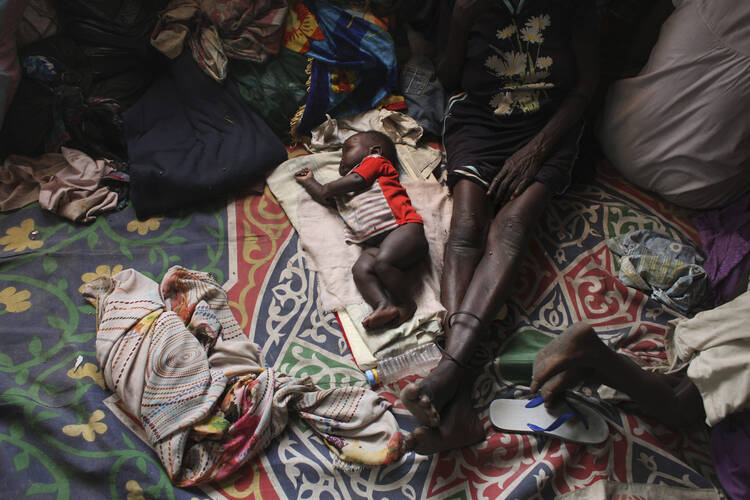Negotiations in Ethiopia led by regional African leaders succeeded in achieving a ceasefire agreement today, tentatively ending the internecine conflict in South Sudan. The Government of the Republic of South Sudan (GRSS) and Sudan People’s Liberation Movement (SPLM/A) in opposition on Jan. 23 signed "Agreements on Cessation of Hostilities and Question of Detainees" in Addis Ababa.
The first part of the agreement calls for both sides to cease all military operations and refrain from any action that could lead to confrontations and establishes a conflict verification and monitoring process for the truce, set to reached within 24 hours, that will allow unrestricted access to aid workers attempting to reach thousands of Sudanese displaced or cut off by the conflict.
Negotiations had previously bogged down over the government's refusal to release 11 political opposition supporters, who were detained shortly after the crisis erupted. South Sudan's government has agreed to free those officials. The agreement calls for setting up a national reconciliation process that includes "detainees and political actors."
Chairperson of the Intergovernmental Authority on Development (IGAD) in Eastern Africa, Special Envoys Ambassador Seyoum Mesfin said that the signing of the agreements marks an important milestone in the IGAD-led mediation process that began on Jan. 2 in Addis Ababa, in pursuit of a peaceful political solution to the crisis that has gripped the Republic of South Sudan.
White House spokesperson Jay Carney called the agreement "a first critical step in ending the violence." He said, "The United States urges both sides to build on this momentum by moving swiftly to an inclusive poetical dialogue to resolve the underlying causes of the current conflict. The U.S. will remain a steady partner to those who choose the path of peace and continue to work for a more peaceful, democratic, unified South Sudan."
South Sudan's crisis was touched off by a December gun battle at army headquarters in the capital, Juba. President Salva Kiir accused former vice president Riek Machar of attempting a coup, a charge Machar denied. Since then, the U.N. reports that "thousands" of people had been killed and more than 500,000 people displaced, including more over 100,000 who have fled to neighboring countries. U.N. officials pledged to continue investiagting claims of war crimes related to the conflict.








